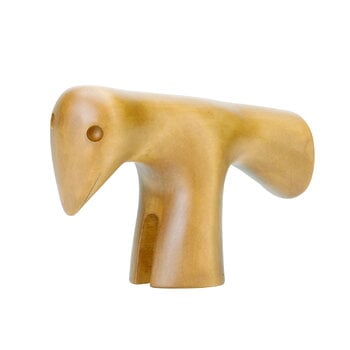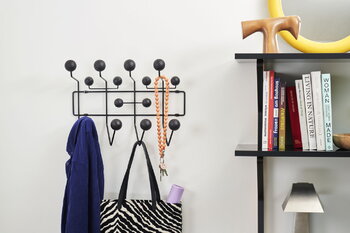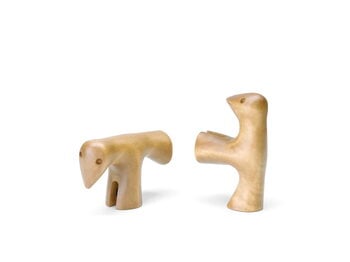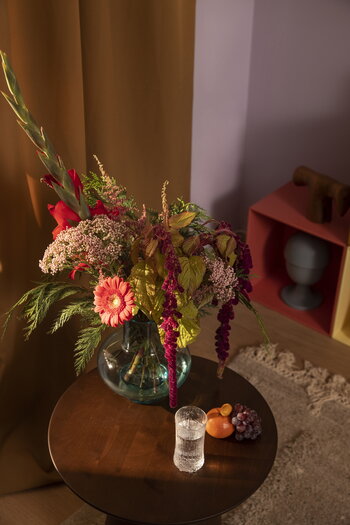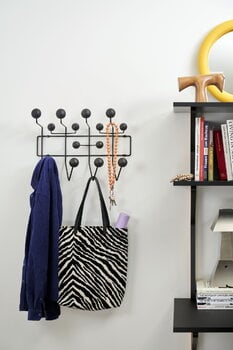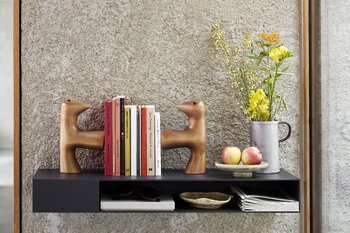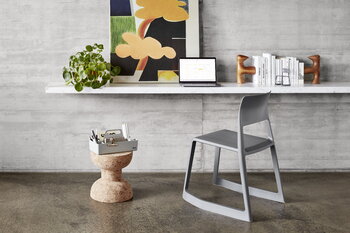Vitra’s Girard Bird was born in the 1940s when American designer Alexander Girard experimented with different materials for making sculptures. In addition to glass, cardboard and plywood works, he also carved figures from solid wood – including a sympathetic bird figure, Girard Bird.
The original bird, hand-carved from apple tree by Girard, is preserved in the archives of the Vitra Design Museum, but in 2021 Vitra, together with the Girard family, brought a maple-wood version of the bird into its collection. The archaic-looking sculpture can be placed to stand on either its legs or its tail, and can also be used, for example, as a book support.
